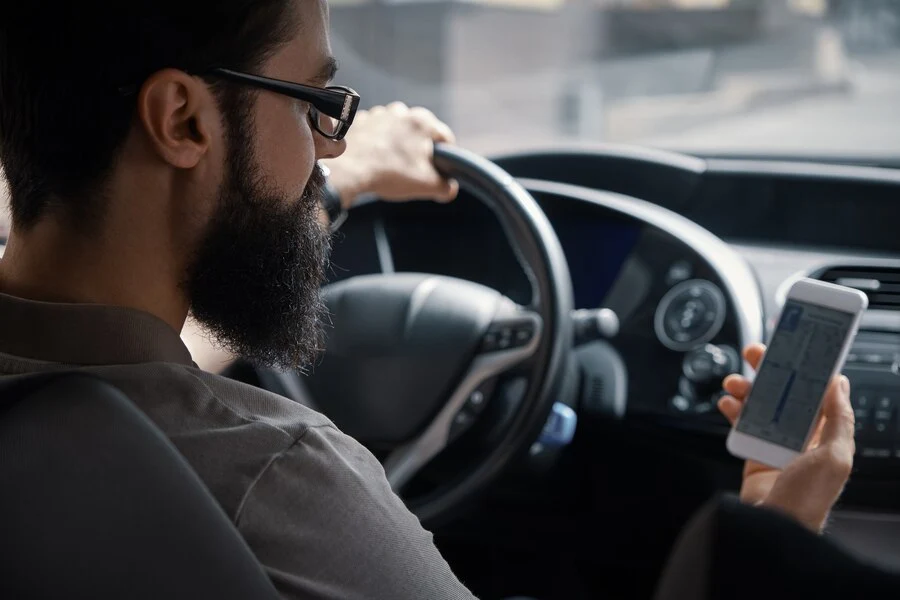personal injury lawyers
Fighting for maximum injury compensation for you and your family
No Fees Until We Win


Does New Jersey Allow Cell Phone Use While Driving?
Driving through New Jersey’s roads demands both caution and compliance with traffic laws.
A concerning question for many drivers is, “Does New Jersey Allow Cell Phone Use While Driving?”
The answer lies in the complexity of regulations designed to ensure safety and controlled distracted driving.
In this comprehensive guide, we uncover the complexities of New Jersey’s laws, exploring the prohibitions, exceptions, and real-world applications.
Whether you’re a seasoned driver or a newcomer to Garden State, understanding these regulations is not just a legal obligation but an important step toward growing a safer driving environment for all.

Distracted Driving: The Menace We Cannot Afford to Ignore
Distracted driving is a serious problem affecting our roads, causing accidents, injuries, and even fatalities.
It happens when drivers divert their attention away from the road, and the consequences can be devastating.
In New Jersey, a state known for its busy roads and workplaces like Newark and Trenton, the issue of distracted driving is particularly relevant.
What is Distracted Driving and How It is a Big Problem?
Distracted driving isn’t just about texting; it encompasses any activity that takes a driver’s focus away from driving.
This can include talking on the phone, eating, adjusting the radio, or using map-reading systems.
How It is a Big Problem?
Statistics show a distinct picture. In 2023, distracted driving contributed to over 20% of road accidents in New Jersey.
That’s more than one in every five accidents occurring due to distractions.
In practical terms, consider your daily commute on Route 1 or the congested roads near the bustling Princeton area, distractions on these roads can quickly turn into collisions.
Local Impact of Distracted Driving
On busy intersections, places like the intersection of Haddon Avenue and Route 130 in Camden often witness distracted driving incidents, leading to delays and potential harm.
In work commutes, on the way to major workplaces in Jersey City, such as those along the Hudson waterfront, distracted driving can escalate due to the pressure of busy workdays.
Understanding New Jersey’s Laws on Cell Phone Use Behind the Wheel
In the bustling state of New Jersey, going through the roadways comes with a set of rules designed to ensure safety for all.
One important aspect is understanding the laws surrounding cell phone use while driving.
New Jersey has implemented strict regulations to control distracted driving, a leading cause of accidents.
The use of handheld cell phones is prohibited for all drivers, a measure aimed at minimizing distractions that could lead to potentially damaging situations on the road.
This rule applies not only to major highways but also to local roads where accidents can have a significant impact on communities.
For new or inexperienced drivers, such as those with learner’s permits or provisional licenses, the prohibition extends to any cell phone use while driving. This includes not only handheld devices but also hands-free options.
Imagine commuting through local neighborhoods, like those around Newark or Trenton, where adhering to these rules becomes important to ensure the safety of pedestrians, cyclists, and fellow drivers.
Local workplaces and businesses in areas like Jersey City or Paterson should inform their employees about these regulations to support a culture of responsible driving.
Regulations and Restrictions Regarding Cell Phone Use While Driving in New Jersey
In New Jersey, driving laws are clear and strict when it comes to cell phone use, aiming to ensure safety on the roads. Here are the key regulations you need to know:
- Handheld Cell Phone Use Prohibited: It is against the law for any driver in New Jersey to use a handheld cell phone while operating a vehicle.
- This includes holding the phone to talk, text, or engage in any other activities.
- No Cell Phone Use for Novice Drivers: If you have a learner’s permit or a provisional license, using a cell phone while driving is not allowed.
- This rule is necessary for new drivers who are still getting accustomed to processing the roads safely.
- School Bus Drivers Prohibited from Cell Phone Use: School bus drivers, responsible for the safety of precious cargo, are prohibited from using cell phones while driving.
- This applies to both handheld and hands-free devices.
- Example: On Route 22, a major highway in New Jersey, using a handheld device while driving is strictly prohibited, ensuring the safety of all commuters.
Specifics of Cellphone Use Prohibitions and Allowances in New Jersey
Understanding the most important details of what is allowed and what is not can help you process New Jersey’s roads legally.
Details on Permissible and Prohibited Activities Involving Cell Phones When Driving in New Jersey
- Permitted Activities: Hands-free devices are allowed for drivers over 21 years old. Emergency calls are permitted for all drivers.
- Prohibited Activities: Texting or sending emails while driving is strictly prohibited. Holding and using a handheld device is not allowed for all drivers.
Enforcement and Penalties Related to Cell Phone Use While Driving in New Jersey
Being aware of the consequences can serve as a barrier and encourage responsible driving behavior.
What are the Consequences and Fines for Violating the Cellphone Use While Driving Laws in New Jersey?
- Penalties: First-time offenders face fines ranging from $200 to $400. Subsequent offenses may result in fines of up to $800 and possible license suspension.
- Enforcement: Law enforcement actively enforces these regulations, and violations can lead to tickets and points on your driving record.
What Should I Do If an Accident Happened While Driving in NJ?
Processing through the after-effects of an accident requires a calm and collected approach. Here’s a step-by-step guide on what to do:
Stay Calm and Assess Injuries
First and foremost, stay calm and assess injuries. Safety is the top priority. Check yourself and others for any signs of injury. If anyone requires medical assistance, call 911 immediately.
Local roads, such as the busy Route 22, often witness accidents, underscoring the importance of quick and accurate responses.
Exchange Information
Exchange information with the other party involved. This includes names, contact details, and insurance information.
For instance, if the accident happens near major workplaces like Johnson & Johnson’s headquarters in New Brunswick, prompt exchange of information facilitates a smoother claims process.
Document the Scene
Documenting the scene is important. Take pictures of the accident site, capturing the vehicles involved, any visible damage, and the overall context.
In suburban areas like Edison, where intersections like Woodbridge Avenue and Plainfield Avenue can be accident-prone, photographic evidence becomes vital for insurance claims and legal purposes.
Seek Medical Attention
Even if injuries seem minor, seeking medical attention is vitally important.
Injuries may not always manifest immediately, and getting a thorough medical check-up ensures that potential issues are identified and addressed promptly.
This holds whether you’re on local roads in Princeton or busy highways like the New Jersey Turnpike.
Call Law Enforcement
Lastly, call law enforcement to report the accident. Provide an accurate account of the incident, detailing what happened.
In areas with high traffic density, like the approach to the George Washington Bridge, police intervention is pivotal for traffic management and legal documentation.
Get Help from a Personal Injury Lawyer in New Jersey
In complex cases, seeking legal advice is essential. A personal injury lawyer can guide you through the legal process, ensuring your rights are protected.
If you find yourself in need of legal assistance in New Jersey, consider reaching out to professionals such as the Rosengard Law Group.
With their expertise, they can provide invaluable support, helping you process the complexities of personal injury claims and ensuring you receive the compensation you deserve.
FAQs
Can I Use a Hands-Free Device While Driving in New Jersey?
Yes, drivers over 21 years old are permitted to use hands-free devices.
Can I Text or Email While Driving in New Jersey?
No, texting or emailing while driving is strictly prohibited.
Can I Use a Navigation System or Map While Driving in New Jersey?
Yes, the use of GPS navigation systems or maps is allowed, provided they are mounted.
Do These Laws Apply to All Types of Vehicles, Including Motorcycles, in New Jersey?
Yes, cell phone use laws apply to all types of vehicles, including motorcycles, unless otherwise specified.
Conclusion
New Jersey’s strict stance on cell phone use while driving reflects a commitment to road safety.
Understanding and adhering to these laws is not only a legal obligation but a key step toward creating a safer driving environment for everyone.
By staying informed and responsible, we contribute to the collective effort to control distracted driving and make our roads safer for all.

Free Injury Case Evaluation
Send the form below and we will call you back in minutes.
…or Call Us Now
856-284-6446
